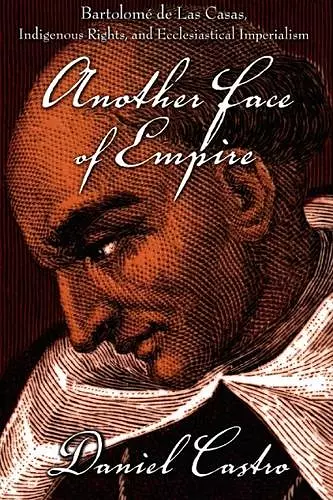Another Face of Empire
Bartolomé de Las Casas, Indigenous Rights, and Ecclesiastical Imperialism
Format:Paperback
Publisher:Duke University Press
Published:24th Jan '07
Currently unavailable, and unfortunately no date known when it will be back

Investigates role that Las Casas played in the evolution of Spanish imperialism and 16th century arguments about human rights, and claims that scholars have overestimated the extent to which he helped indigenous people
The Spanish cleric Bartolomé de Las Casas is a key figure in the history of Spain’s conquest of the Americas. Las Casas condemned the torture and murder of natives by the conquistadores in reports to the Spanish royal court and in tracts such as A Short Account of the Destruction of the Indies (1552). For his unrelenting denunciation of the colonialists’ atrocities, Las Casas has been revered as a noble protector of the Indians and as a pioneering anti-imperialist. He has become a larger-than-life figure invoked by generations of anticolonialists in Europe and Latin America.
Separating historical reality from myth, Daniel Castro provides a nuanced, revisionist assessment of the friar’s career, writings, and political activities. Castro argues that Las Casas was very much an imperialist. Intent on converting the Indians to Christianity, the religion of the colonizers, Las Casas simply offered the natives another face of empire: a paternalistic, ecclesiastical imperialism. Castro contends that while the friar was a skilled political manipulator, influential at what was arguably the world’s most powerful sixteenth-century imperial court, his advocacy on behalf of the natives had little impact on their lives. Analyzing Las Casas’s extensive writings, Castro points out that in his many years in the Americas, Las Casas spent very little time among the indigenous people he professed to love, and he made virtually no effort to learn their languages. He saw himself as an emissary from a superior culture with a divine mandate to impose a set of ideas and beliefs on the colonized. He differed from his compatriots primarily in his antipathy to violence as the means for achieving conversion.
“Another Face of Empire incontrovertibly adds to general understanding of Bartolomé de Las Casas. Daniel Castro persuasively argues that Las Casas contributed substantially to the establishment of Spanish imperial hegemony in the Americas in the first century after the conquests.”—Franklin W. Knight, editor of Bartolomé de Las Casas’s An Account, Much Abbreviated, of the Destruction of the Indies
“Father Las Casas offered what all empires need: a sense of their own moral legitimacy. This book forthrightly unmasks the imperial gift-giver. It should be read by all colonialists and those who study human rights issues.”—Colin M. MacLachlan, John Christie Barr Distinguished Professor of History, Tulane University
“[H]istorians of Latin America will find Castro’s work to be a significant contribution to the field of postcolonial studies of the Spanish Empire. Castro’s capable revisionist brush provides insight into the ways in which the life of one man can mean so much to so many people for so many reasons.” -- Michael Pasquier * Interventions *
“Daniel Castro deserves praise for the clarity and freshness of his insights on Las Casas in this book. He points out and eliminates much of the tendentiousness that so often typifies writings about the great Franciscan and thereby composes a highly useful book.” -- John E. Kicza * Renaissance Quarterly *
“This is an important contribution to the literature on Las Casas. It removes the halo and sees the man within the context of his time, and looks into the motivations for his actions and positions. It simply is one of the most refreshing analyses of Las Casas to have appeared in quite some time.” -- John F. Schwaller * Bulletin of Latin American Research *
ISBN: 9780822339397
Dimensions: unknown
Weight: 363g
248 pages